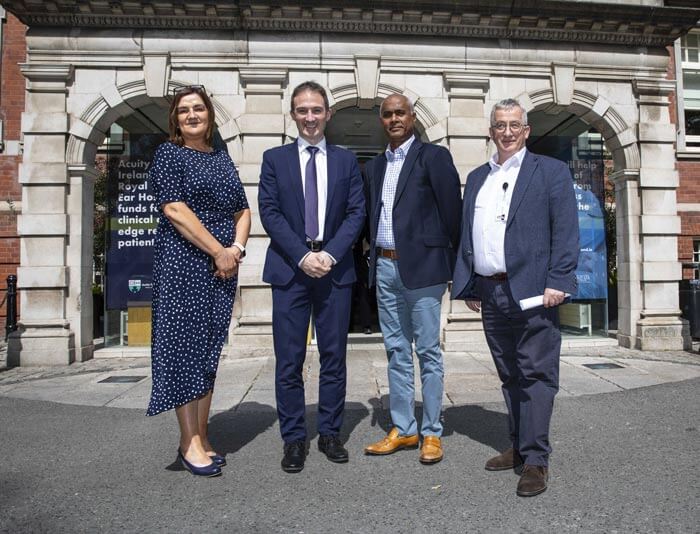
The Royal Victoria Eye and Ear Hospital has launched its hospital-grade, medicalised, thermophilic biodigester, capable of processing both biodegradable clinical and food waste on-site.
Developed through a collaboration between HaPPE Earth and Harp Renewables, the biodigester marks a national milestone in sustainable healthcare practice.
As a circular economy innovation, the thermophilic biodigester will transform over 20 tonnes of annual food and compostable clinical waste into reusable compost. It is designed to handle splash aprons, shoe covers, biodegradable PPE, and emerging plastic alternatives. RVEEH has previously relied on more than 320 site waste collections annually. The new system reduces this dependence, lowers transport emissions, and enhances local waste management.
Speaking at the official launch,Alan Dillon, Minister of State at the Department of Enterprise, Trade and Employment with special responsibility for Small Businesses and Retail and the Department of the Environment, Climate and Communications with special responsibility for Circular Economy said, “The Royal Victoria Eye and Ear Hospital is setting a benchmark for sustainability in clinical operations. This project will cut emissions and will lead by example, showing how hospitals can manage waste with environmental responsibility.”
Ash Dallsingh, Chair Sustainability Committee, RVEEH, said, “This project aligns with our strategic pillars. It’s about doing the right thing for the future of sustainability in healthcare in Ireland and about the hospital achieving the goal of a 50% reduction in our carbon footprint by 2030.”
The initiative forms part of a two-year research and evaluation partnership to assess bio-digestion in clinical environments, including its ability to process additional materials and integrate with next-generation thermophilic technologies.
Data gathered during the pilot will inform peer-reviewed findings with academic partners, contributing to future evidence-based waste policy in healthcare. RVEEH is committed to embedding sustainability in patient care and leading by example across the health sector.

